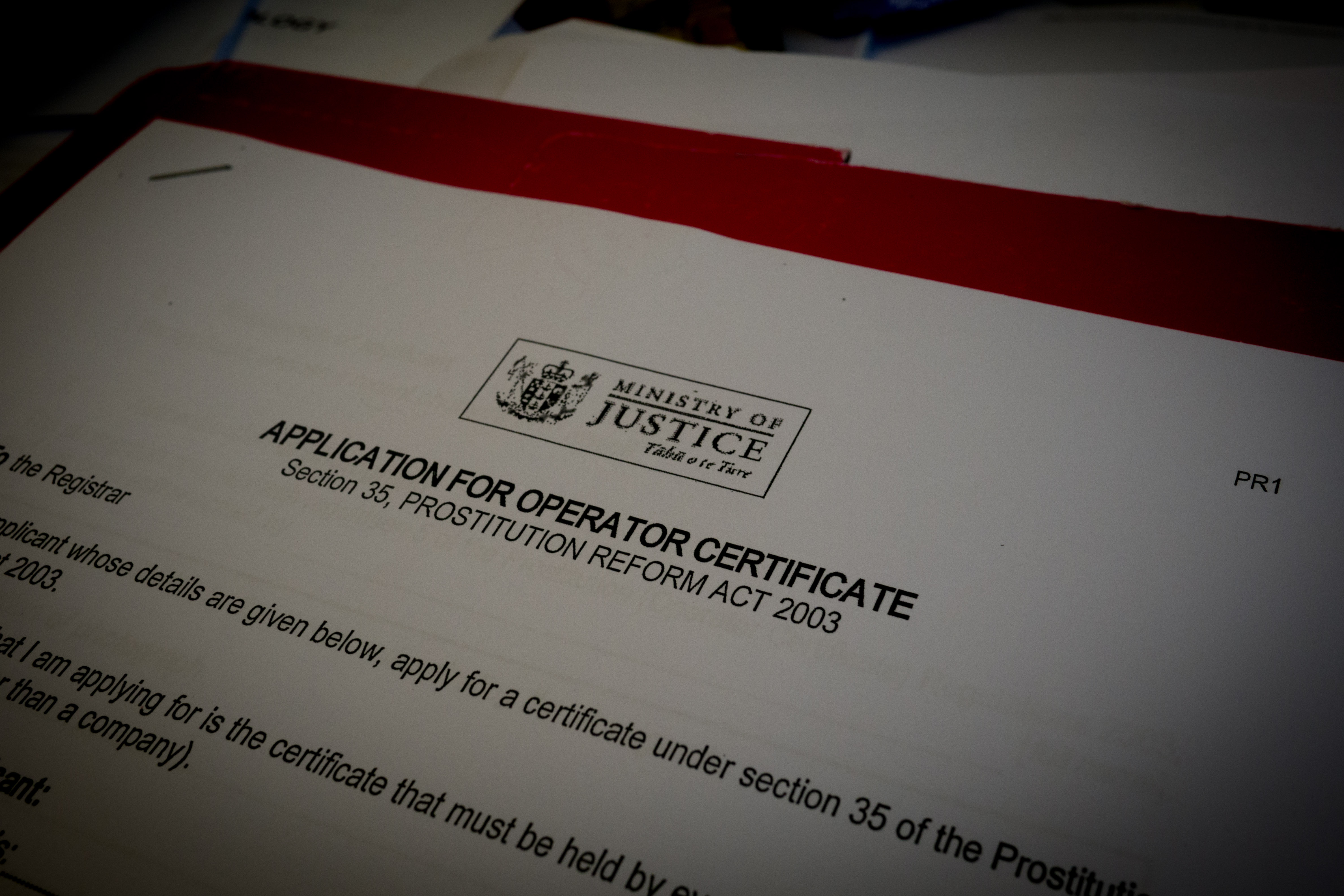The Health and Safety at Work Act 2015 (HSWA ) requires all people who are conducting business or undertaking (PCBUs) to uphold health and safety practices for those in the workplace. This applies to all employers, self-employed people, as well as principal contractors and therefore businesses who contract sex workers. COMPREHENSIVE GUIDANCE HERE
This means that if you are a brothel operator, leaseholder, person managing a room rental collective, or a sex worker, you have health and safety obligations.
All sex workers can refuse work, change their mind, or withdraw consent without giving any reason – this is in the Prostitution Reform Act (2003). In addition, all workers can legally refuse to work if they deem it unsafe according to HSWA .
In a nutshell:
FOR OPERATORS/ROOM RENTAL MANAGEMENT
Your primary duty of care for health and safety is the same whether you employ people or contract them in, and whether the contracts are verbal or written.
HSWA requires you to identify and manage work-related risks. Risks you must manage include:
- health risks (e.g. risk of exposure to STIs, chemicals, and fatigue or overuse injuries, etc),
- psychosocial risks (e.g. coercion, stress, trauma, harassment)
- safety risks (e.g. physical hazards in the workplace like risk of slipping in the shower, aggressive or intoxicated behaviour from clients,
Managing these risks should be done using an established risk management process and using a ‘hierarchy of controls’ process to determine how to best manage each risk
You should assess all the hazards associated with the work and assess the risks those hazards present. You must then take steps to manage the risks using control measures. Control measures include (in order of effectiveness):
- Eliminating the risk
- Make a substitution (eg swap for something safer).
- Isolate the exposure to it (eg move the hazard away from workers)
- Providing for physical control of it (eg put up a barrier around the hazard)
- Providing administrative controls (eg rules, practices)
- Providing Personal Protective Equipment (PPE: e.g. condoms and lubricant)
You should select the most effective, reasonably practicable control measure to manage the risk. Below are some examples of what would be considered reasonably practicable control measures for common risks associated with sex work.
In case of risk of contact with STIs when the mahi is full service
|
Eliminating it
|
->
|
Not practical
|
|
Make a substitution
|
->
|
Armpit sex instead? – not practical
|
|
Isolate the exposure to it
|
->
|
Not practical
|
|
Providing for physical control of it
|
->
|
Not practical
|
|
Providing administrative controls (rules, practices)
|
->
|
Policy of no sexual contact without prophylactics
|
|
Providing PPE
|
->
|
Provide condoms, dams, lube |
In another example, if you identify that workers are at risk of fatigue (health), or stress (psychosocial) you could:
- Ensure you uphold workers’ rights to choose clients and services offered.
- Ensure workers can leave or change their shifts when tired (without penalty)
- Provide adequate break time and space for a nap/rest and/or making personal phone calls.
- Manage shift lengths to avoid overworking.
- Manage time between bookings to suit the worker.
- Train management/desk staff to identify fatigue.
If you identify that workers are at risk of slipping in the shower (safety), you could
- Ensure non-slip shower mats are in place.
- Ensure policies/practices about not working while fatigued/intoxicated are followed.
- Ensure polices/practices about not taking bookings from intoxicated clients are followed.
- Install handrails in showers.
- Consider signage to point out slippery surfaces.
- Spray and wipe/towel dry after shower use to remove any slippery residue from soaps and creams.
- Ensure first aid kit is fully stocked.
These are just basic examples of how you are expected to think through hazards and risks in the workplace.
Listening to your workers
All establishments (regardless of size, whether employers or contractors) are also required by law to facilitate worker representation in health and safety discussion if the workforce ask for it.
If the workers want just one representative, or a committee, you are required to facilitate that through an election process. You must also adopt their recommendations or respond in writing to explain why you haven’t.
Health and Safety Representatives | WorkSafe and Health and Safety Committees | WorkSafe
General Risk and Workplace Management Regulations 2016
These regulations cover the basic facilities you are obliged to provide for workers in any workplace. They include (but are not limited to):
- toilets
- drinking water
- handwashing facilities
- place to take a break
- suitable ventilation
- provision of PPE – condoms and lubricant
- functional fire exits
- appropriate temperature control
- health and safety training
For more information see WorkSafe’s webpage: General risk and workplace management - part 1 | WorkSafe
And of course
The PRA Obligations
You must:
- Support the right to refuse clients or withdraw consent
- Adopt, promote and support safer sex practices
- Share health information and display safer sex information prominently

